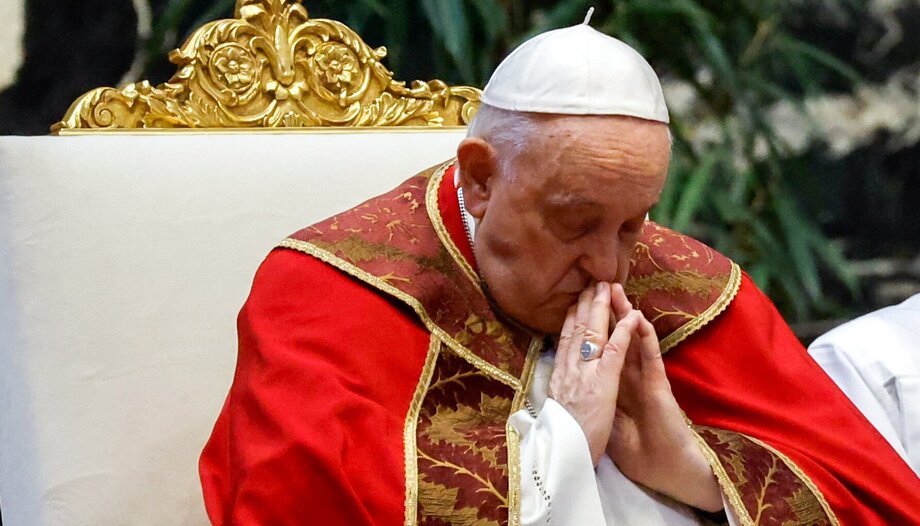Pope Francis has prayed in the Angelus of this Thirty-first Sunday in Ordinary TimeIn his Gospel, Jesus rebukes the scribes and Pharisees who do not practice what they preach, that "in the name of God" the war in the Holy Land be stopped, that "they cease fire", and that "all possible ways be explored so that a widening of the conflict is absolutely avoided".
Moreover, the Pontiff said in a tone of anguish "that the wounded may be helped, that aid may reach the population of Gaza, where the humanitarian situation is extremely serious. The hostages, including so many children, must be released immediately and returned to their families".
"Let us think of the children involved in this war, as well as in Ukraine and other conflicts. Let us pray for the strength to say enough is enough," the Pope encouraged.
Nepal, Afghans, storm victims
After the recitation of the Marian prayer of the Angelus, Francis visited some places of suffering in the world and said he was "close to the people of Nepal, who are suffering because of an earthquake, as well as to the Afghan refugees who have found refuge in Pakistan, but who now do not know where to go". The Pope also prayed "for the victims of the storms and floods in Italy and other countries".
Referring to groups of pilgrims, he greeted with affection "all of you, Romans and pilgrims from other countries, in particular the pilgrims from Vienna and Valencia" and from Cagliari. "Please don't forget to pray for me," Pope Francis concluded, a request that is. prayer intention for the month of November.
No to the duplicity of heart and life
In the gospel commentaryBefore the Angelus prayer, referring to the scribes and Pharisees who "say and do not do", Pope Francis invited everyone, especially those with responsibilities, not to be "double-hearted" and not to worry only "about being impeccable on the outside".
Commenting on the Gospel passage from St. Matthew (23:1-12), proposed for today's liturgy, on Jesus' words to the scribes and Pharisees, which the Pope described as "very severe," he noted. two aspectsHe also pointed out "the distance between what is said and what is done, and the primacy of the exterior over the interior". On the first, he emphasized that, to the religious leaders of the people of Israel, "who claim to teach others the Word of God and to be respected as authorities of the Temple", Jesus questions "the duplicity of their lives: they preach one thing, but then live another".
"We are fragile," Francis added, and so we all experience "a certain distance between saying and doing." But having "a double heart," living with "one foot in two shoes," is something else. Especially "when we are called - in life, in society or in the Church - to play a role of responsibility".
"The rule is to be credible witnesses first."
"Let us remember this: no to duplicity!" he added. "For a priest, a pastoral worker, a politician, a teacher or a parent, this rule always applies: what you say, what you preach to others, commit yourself to live it first. To be teachers with authority it is first necessary to be credible witnesses."
Pope Francis concluded with the usual questions for examination, "Do we try to practice what we preach or do we live in duplicity? Do we say one thing and do another? Are we concerned only with appearing flawless on the outside, made up, or do we care for our inner life in the sincerity of the heart?"
In his concluding prayer, the Pontiff asked that we turn to the Virgin Mary. "May she who has lived with integrity and humility of heart according to God's will, help us to become credible witnesses of the Gospel."









